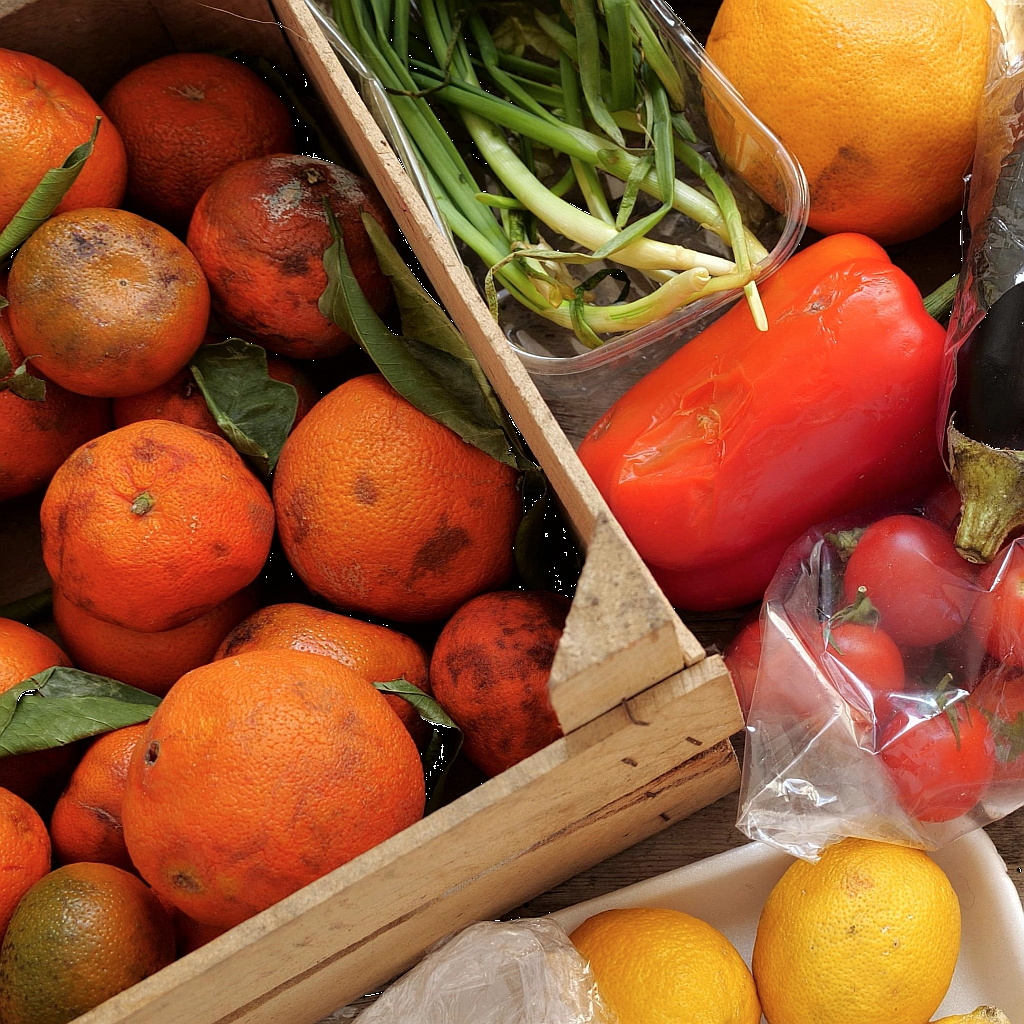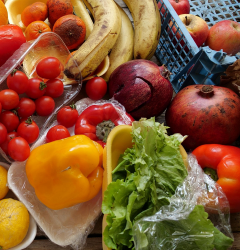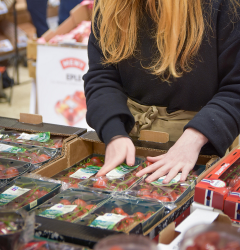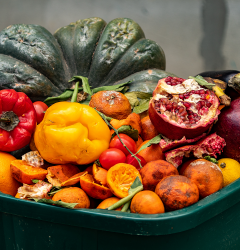28 Jul

5 Retail Food Waste Management Strategies
Retail food waste is one of the most significant problems worldwide, costing billions in lost revenue and damaging human and natural resources. Grocery food waste harms the environment, leading to global warming, change, and damaged ecosystems. For instance, retail bread waste goes to landfills and enters the waterbodies, fresh streams, rivers, and oceans, disrupting the entire ecosystem. It also produces greenhouse gas emissions, including methane.
According to the United Nations Environmental Program (UNEP), methane is a greenhouse gas that leads to one million premature deaths yearly. In addition, food waste negatively impacts retail-based resources, such as labor, water, processing, packaging, storage, and transportation. The primary cause of retail fruit and vegetable waste is a lack of appropriate planning, problems in industrial processing, improper compliance with food safety policies, ineffective managerial operations, and over-preparation of food in the food service industry, including restaurants and hotels.
Today’s article will discuss the five best retail food waste management strategies to help you streamline your in-store operations, reduce risks, manage grocery waste, increase revenues, and improve your business’s bottom line. Read on!
1. Use Expiration Date Tracking Technology
According to Green Biz, expiry dates are one of the most significant contributors to food waste in the retail industry. About 87% of retail bread waste or grocery waste is the expiration date, forcing retailers to dispose of the products. Experts recommend retailers educate employees and customers about the expiry dates. Most people do not know how to identify the expiry date on the food product, causing retailers and grocers to throw away edible food. Few consumers understand the primary difference between essential terms like “Sell by,” “Use by,” or “Best Before.” However, grocery stores and retail companies can develop a strategy to standardize this information. For instance, if you are running a grocery store or retail company and want to reduce retail fruit and vegetables waste, you must implement a retail food waste management policy and present “expiry dates” to consumers in an easy-to-read and accurate format.
The best way to achieve your goals is to use “date” tracking technology. You can find various cutting-edge tools to automatically check and flag food products’ expiry dates and give you accurate data. The information generated by a date tracking technology or software can help you make an informed decision and offer discounts to consumers on soon-to-expire grocery products, fruits, or vegetables. That way, you can prevent the risk of food waste.
2. Identify Grocery Food Wastage Patterns
Although various industries focus on advanced, cutting technology tools to streamline their business operations, many retailers and grocery stores heavily rely on spreadsheets and paper printouts. The manual processes lead to errors, inaccuracy, and increased risk of food waste. Therefore, implementing a cutting-edge software solution tailored to your business needs is essential to capturing, analyzing, and communicating data. The purpose is to collect data, analyze it, and generate valuable insights to achieve efficiency, reliability, and cost-effectiveness. Advanced data analytics, cutting-edge POS systems, and demand planning tools allow retailers to collect data efficiently and predict consumer demand. These tools also enable grocery or retail companies to identify food waste patterns and order the correct number of products.
There is no need to completely automate your retail store’s operations. However, using tools based on machine learning algorithms, statistical models, and artificial intelligence can help predict consumers’ needs/wants and requirements. Not only do data analytics and demand-based predictive tools cut down on retail fruit and vegetables waste, but they also help you determine high-demand areas. Thus, you can streamline your store’s inventory and include the products consumers demand the most. Link Retail is a licensed, reputable, and experienced food waste management company providing cutting-edge solutions to reduce food waste for retailers and food companies. For instance, the back-office management tools developed by Link Retail are tailored solutions, allowing you to track and analyze data in real-time, generate valuable insights, and use them to improve your business performance.
3. Focus on Staff Training
Inventory management at physical levels requires your store’s staff to properly carry out transit and storage operations. The reason is that damage to food products occurs during transit and storage. For example, one of your in-store employees places heavy items on eggs, fruits, or vegetables. So, this can damage the fresh produce, preventing customers from buying the products. Eventually, the food waste goes to landfills.
You can prevent these unpleasant situations by training your staff. There are various ways to get your team on board and help them learn about retail food waste management. Link Retail offers state-of-the-art apps for in-store employees. The app has excellent features, including:
• Ordering suggestions
• Production planning and suggestions
• Overviews with results
4. Use Cutting-Edge Appliances
Danfoss reports that retail stores use 2% of the world’s electricity. Although 2% seems a small percentage, it is a whopping number compared to other industries. For instance, data centers consume less electricity than retail stores. Therefore, incorporating energy-efficient and asset-monitoring solutions in your retail store can reduce electricity consumption and maintain food quality and safety. The goal is to prevent food products from going into waste/landfills. We recommend using cutting-edge and energy-efficient refrigerators and appliances that maintain food quality, safety, and reliability. Set the refrigeration appliances to the correct temperature to reduce electricity consumption. In addition, successful retail or grocery stores leverage the power of advanced technologies, such as the Internet of Things (IoT), to improve energy performance via actionable insights. These technologies can help you stand out from the competition and achieve sustainability goals. IoT solutions can save millions for companies in the retail industry, allowing them to cut food waste and reduce carbon footprints.
5. Distribute Surplus Food
According to the Independent, retail companies and grocery stores in the United Kingdom have poor policies regarding surplus food. Most companies do not distribute or donate surplus food to needy people. The article published on Independent.co.uk highlights that prominent retail companies in the UK donate no more than 9% of the surplus food. As a result, the surplus food ends up in landfills.
According to the Euro Food Bank, retail and food businesses must increase food donations and redistributions to avoid waste. The Euro Food Bank Federation has over 341 outlets/franchises in more than 30 countries. These food banks make substantial efforts to reduce food waste and insecurity. Therefore, retail businesses across Europe must focus on donating to charities and deprived people to mitigate the risk of fruit and vegetables waste and ensure the deserving people receive their fair share of the surplus food.
Final Words
Food waste is a massive problem across the world, causing instability in the socio-economic and business ecosystem. Link Retail aims to help retailers and grocery companies by reducing the waste of bread, fruit, and vegetables. We offer advanced, cutting-edge solutions based on data analytics tailored to your needs. Contact us today for more information on our products.
Related Post
Tags
Keywords
Tags
Resources
© 2020-2024 Link Retail. All rights reserved.











